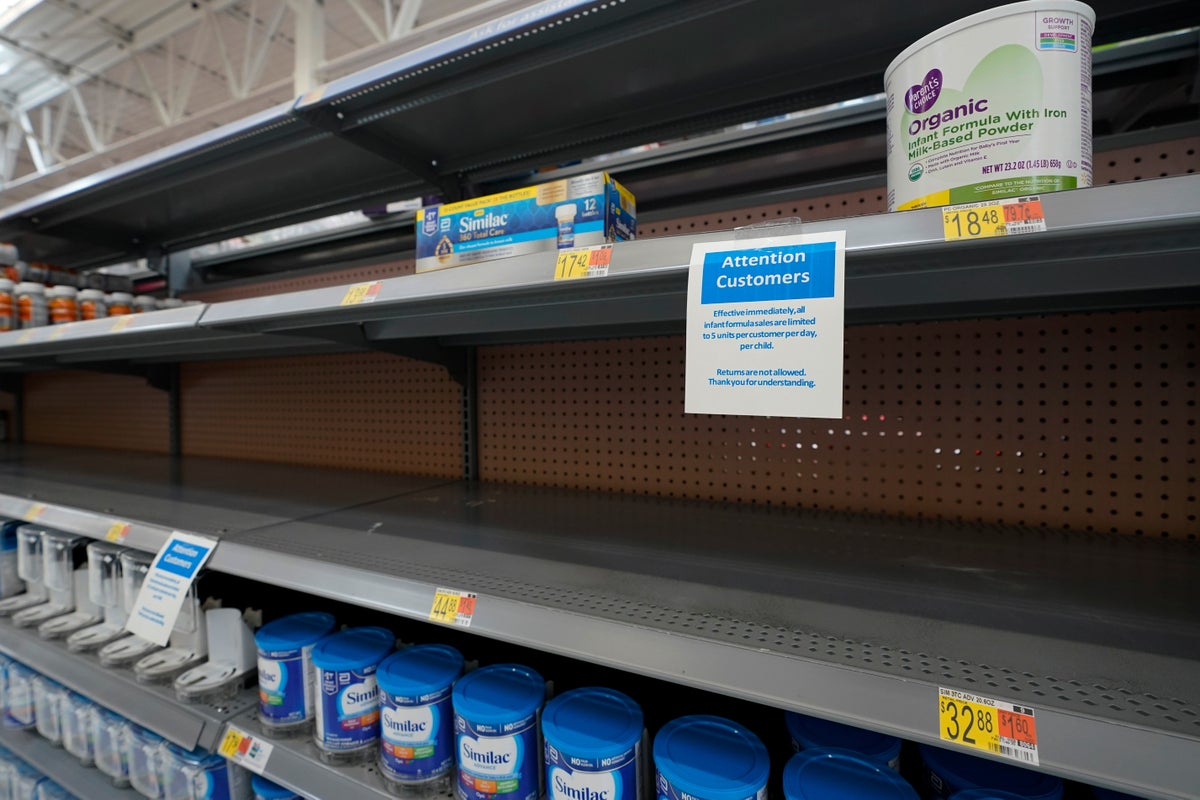
The baby formula shortage in the US will likely not be resolved until late July, the head of the Food and Drug Administration (FDA) has said at a senate committee hearing.
FDA chief Robert Califf told senators on Thursday that the shortage could end in two months, adding there will eventually be a surplus.
“I can’t be exact about this but my expectation is that within two months we should be beyond normal and with a plethora,” Mr Califf said.
He said the situation is going to get “better and better” with the current measures being taken.
The current formula shortage in the US is largely due to problems at Abbott Nutrition’s Michigan plant, the largest in the US, which was shut down by the FDA in February due to contamination.
The federal agency began narrowing down on problems at the plant after tracking four bacterial infections in infants who had allegedly been given formula from the facility.
Four infants have been hospitalised while two died after getting infected with the bacteria.
After detecting samples of bacteria in multiple parts of the facility, the FDA shut the Abbott plant and the company announced a large-scale recall of its formula on 17 February.
The federal agency, however, has not been able to conclusively link the bacteria found at the Abbott’s plant to those found in the babies.
Plans to inspect the plant were slowed by Covid, scheduling conflicts and other logistical problems, leading to the overall shortage of baby formula across the country, Mr Califf said.
Abbott Nutrition has yet to meet the FDA’s requirements and won’t be ready to open for several weeks, he added.
“I think Abbott would agree with us that they’re not ready to open. They had to replace the roofs, replace the floors, and they’re still not done. You just can’t reopen a plant with bacteria growing in it,” Mr Califf said.
The FDA chief added there should be discussions on whether the federal government should create a national stockpile of formula “as a backup” to guard against future disruptions.
“I think we’re going to have to have a surplus. We’re certainly planning to have a surplus. The question is, should we maintain that surplus as a government activity for the foreseeable future?” he asked at the hearing.






